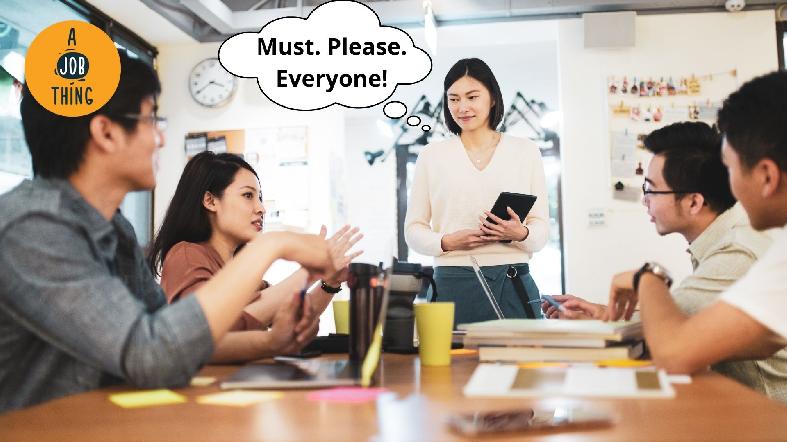
Why People-Pleasers Should Learn to Say "No"
Are You Hiring?
Find candidates in 72 Hours with 5+ million talents in Maukerja Malaysia & Ricebowl using Instant Job Ads.
HIRE NOW
It's okay if you like to help people, but if you're too focused on being a people-pleaser, you will find yourself stressed out and your productivity negatively affected. However, if you learn to say NO, you can finally concentrate on your work. You will also stop people from taking advantage of you.
Being a people-pleaser is an unhealthy habit.
Do you know that you are regularly haunted by distractions when you're at work? For example, your phone. All it takes to distract you is a single notification beep.
What is it now? An email? or WhatsApp message? It doesn't matter. It never ends. You might think turning the phone off will stop the distraction.
No, in actuality, turning the phone off only delays the inevitable, and you will still need to answer those emails and messages.
We're not talking about urgent messages; we're talking about things that are not related to your duties such as other people's work, useless meetings, and dull events that do not benefit you.
But as a people-pleaser, what matters is how you respond.
.jpg)
When you're at work, you're paid for your own task, not others. Unless it's specified in the employment contract.
Example distractions and people-pleasing reactions
- Email / WhatsApp: "URGENT, NEED YOUR HELP on this very irrelevant task" People-pleasing reaction: Well, this task is not relevant to me, but it sounds like they could use my help. Why not?
- Useless Meetings: "There is no point to this meeting but we're having one anyway." People-pleasing reaction: The meeting will only take an hour. Maybe we will achieve something productive this time. The work can wait.
- Excuses: "Sorry, I can't finish my work today, my wife's aunt's cousin passed away." People-pleasing reaction: Hmm… maybe they're close, let's give them extra time to deliver their work.
- Events — "Don't miss this extraordinary, once in a life-time, all day conference. This networking opportunity only happens every blue moon." People-pleasing reaction: Maybe this time, I will get to network with someone influential, and we can get a business project.
- Coworker asking for favours: "I just saw this cool feature on a blog site. We totally need it. It should not take much time to build this easy feature, right?" People-pleasing reaction: I might have 15 other tasks waiting to be finished by the end of today, but sure, I guess I have to prioritise the coworker's unnecessary request.
Saying NO can bring a positive effect on your life.
It's not easy to say NO, but the word is profoundly liberating. When you think, "this issue does not require my immediate attention, or it is counterproductive therefore we're not doing this," you are embracing your intuition.
When you consider saying NO, there's probably a good reason why you think that way. The word NO is how you stop distractions, be honest to yourself, and stay on the course.
Have you ever agreed to do something you do not believe is right or want to do? It takes a toll on your mental health. You have a job to do, and every time someone interrupts you, your productivity comes to a stop. It kills your vibe.
Trust your gut whenever you think of pleasing others. Do not let others take advantage of you.
.jpg)
The common issue of being a people-pleaser is that you will eventually be taken advantage of.
How to solve this problem
How do you say NO without offending someone?
The answer is it is all about effective communication. People will finally respect you for disagreeing with them. Saying NO is not an act of disrespect. It shows you have a vision, a plan, and an opinion.
By precisely explaining your needs, issues, or deadlines (in advance, if possible), you start to reduce distractions. This way, you will stop feeling the need to please people because you have a plan laid out.
Here's an example: You have a project with a client, but the client wants you to do this extra task. If they're not paying for that task, then you should say no. Free work does not pay the bills, and it depletes your resources. If you say NO, you will be able to carry on with the project without a hitch and finish it on time.
People-pleasing halts production, reduces revenue and creates a guilty inner demon who laughs at you for agreeing to things you know is a waste of time.
When you say NO, it shows you're in control of the situation and ensures that you will finally get to finish your job.
Source: LifeHacker
Related articles
How Do You Deal With Annoying People at Work?
What Should You Do If You Lost Your Employee's Trust?
How to Deal with a Procrastinating Employee



